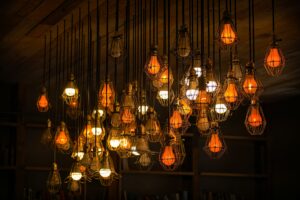4 Tips for Choosing the Ideal Marine Generator for Your Boat

A generator is an important part of the boat’s power system. It allows you to enjoy all the comforts you would have at home while enjoying your time in deep waters. Nevertheless, with the many types and sizes of generators, it is easy for you to get confused in the selection. Boat enthusiasts argue that after the main engine, the marine generator is the second most expensive boat element. For this reason, you must make the right and worthwhile choice. Here are a few tips for selecting one.
1. Know the Size and type of Your Need
One of the things you must assess is the amount of electrical power you need. This is usually measured in kilowatts (thousands of watts) and depends on your preferences. For instance, if you want air-conditioned comfort 24/7 during your cruise, you must be prepared to spend.
To know the size and type of marine generator you need, calculate the wattage for all your appliances. Please keep in mind the lights, light electronics and other non-essential tools that draw electricity. A good boat or marine generator should have at least 1500 or 1800 RPM (Rotations per Minute). However, your precise needs will determine how much you need.
2. Understand Your Fuel Options
As you embark on selecting a suitable marine generator set, consider picking one that operates on the same fuel as the vessel’s inboard. If your boat uses gasoline, your best shot will be getting a gasoline generator. Not only is it convenient, but it also minimizes your carbon footprint as you focus on using only one option.
Even so, the above tip may not apply to on-board fishing boats that have gas inboards. This is because the fishing boats tend to be less ventilated. Following this, it would be way better for you to use diesel marine generators than gas models.
3. Ease of Installation
How easily can you install the marine generator? To know this, you must assess the installation guidelines for compatibility. Most marine generators require you install water intake systems to cool the engine. Others require you to add strainers to protect the generator’s cooling system from debris.
Before you get any marine generator, ensure that you understand the installation guidelines alongside any other tools or equipment that may be needed. Make sure you have enough room for them to function optimally.
4. Used or New
The debate on whether to buy a new or used marine generator is pegged on many factors. For starters, used marine generator sets represent a sizeable saving as long as you get them from reputable dealers such as Pool Trading. On the other hand, new generators are generally expensive but come with the security of a longer warranty. Nonetheless, everything comes down to your available budget and the desired features.
Conclusion
Getting the right marine generator for your boat doesn’t have to be such a difficult task. Simply assess your desired features and settle for the appropriate size and type. After this, you should focus on the fuel options and the ease of installation. Don’t forget to check out both new and used generator options to determine what works ideally and optimally for your vessel.





